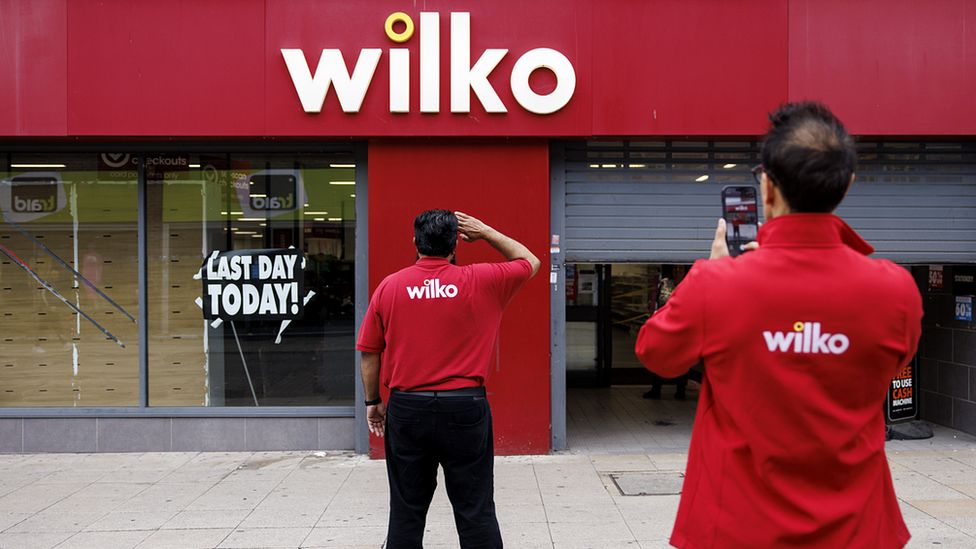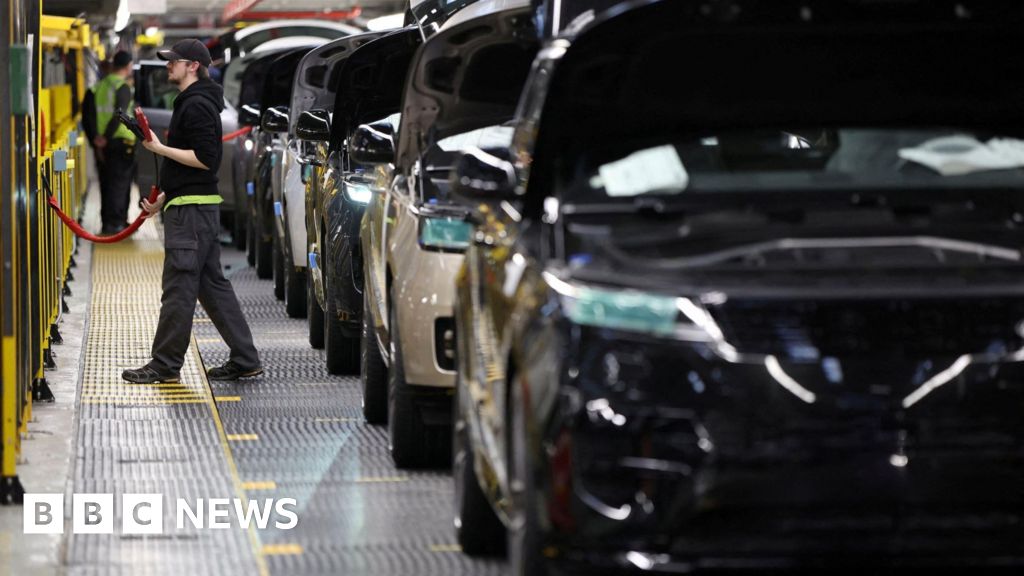ARTICLE AD BOX
 Image source, EPA
Image source, EPA
Wilko employed more than 12,000 people before it collapsed
By Lucy Hooker
Business reporter, BBC News
There was a rise in new outlets opened by UK chains last year, dominated by coffee drive-throughs, bubble tea shops and fast food restaurants, mostly located outside city centres.
But they were not enough to outweigh the places where chains shut up shop, new figures show.
High profile failures at Wilko, Lloyds pharmacy and Paperchase meant in total there were more closures than openings.
The result was a net decrease of 5,000 in stores across the UK.
Stores were lost at a rate of 14 per day over the year, underlining a long-term trend for both retail and services shifting to online, said accountants PwC, which analysed data compiled by the Local Data Company.
The 9,138 new openings last year was the highest figure since 2019, and was almost entirely driven by new hospitality sites, PwC said, representing a bounce-back after the sector's high closure rate during the pandemic.
Chains closed 11,530 stores in 2023, driven by "one-off" restructurings and failures at big retailers, some of which had been struggling for years, PwC said.
Out-of-town retail parks bucked the trend, boosted by new food outlets, and showed a slight overall rise in sites operating. The roll out of electric vehicle charging stations also meant there was a net gain of 48 petrol stations.
Twice a year PwC uses Local Data Company figures to explore the changing landscape for physical retail, hospitality, services and leisure, both on city centre high streets and at out-of-town locations.
The report reflects changes at all chains with more than five outlets, including everything from gyms to supermarkets, banks to pizza takeaways. Its figures for 2023 show net closures were higher than in 2022, but remained significantly lower than in the three preceding years.
Lucy Stainton, commercial director at the Local Data Company, welcomed the rise in store openings as a positive sign for the coming year and said 2023's increased "churn" reflected larger operators "repositioning and consolidating their portfolios" as well as more flexibility in the rental market, including shorter lease lengths.
Image source, Kien Tan
Image caption,PwC's Kien Tan points to an old Paperchase site at Embankment tube station being replaced with a Greggs as illustration of the trend towards food outlets
Kien Tan, senior retail adviser at PwC said several sectors had seen high numbers of closures in 2023 due to "one-off" failures.
Last year saw large scale restructuring and widespread closures at LLoyds pharmacy chain, the Slug and Lettuce pub chain, Paperchase and Clintons stationery chains, fashion store M&Co, as well as general store Wilkos.
All the closures are counted in the figures, even though a proportion reopen under new owners or after a restructuring process.
Mr Tan said that meant 2024 could see a quite different picture as there has already been "a bit of a clear out" now in underperforming chains.
Despite a high degree of focus on failing retailers, it is services that have driven closures over the last decade, he added, with services such as banks and betting shops closing at a faster rate as operations shifted online.
However, there were now signs that trend was "bottoming out" he said. "[We] are probably getting to the point where closures of services are starting to slow down."
Charity shops experienced a net closure rate of 39 in line with commercial operators, he added, and were also expanding their operations online, he said.
This year the Body Shop and night club chain Pryzm have already run into difficulties, announcing the closure of sites across the UK.

 1 year ago
88
1 year ago
88








 English (US) ·
English (US) ·